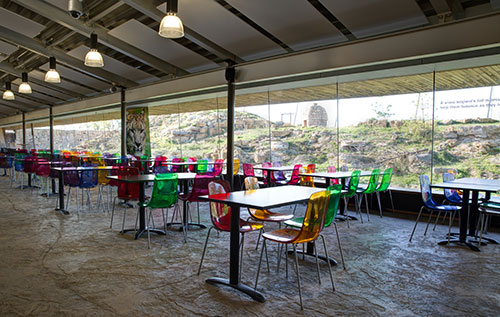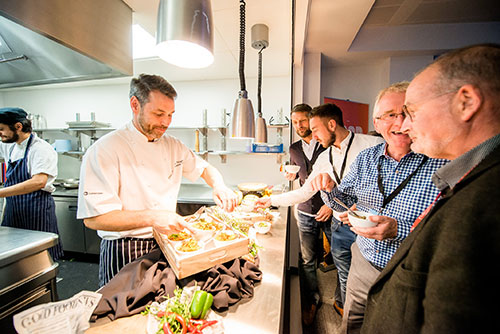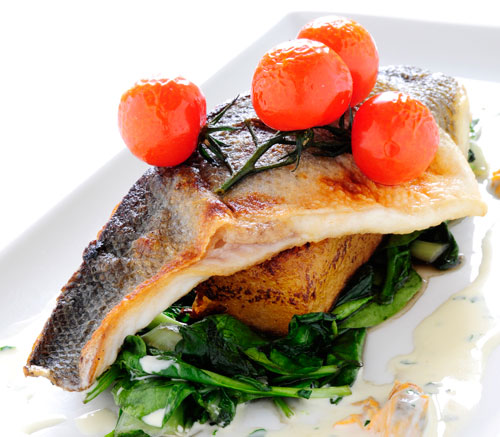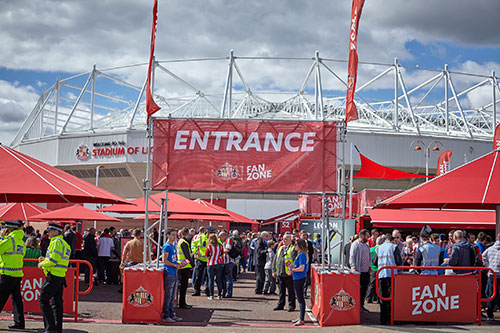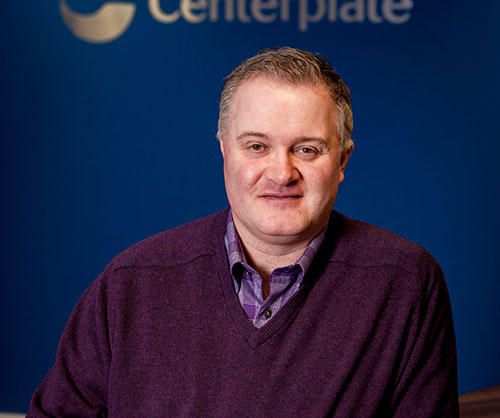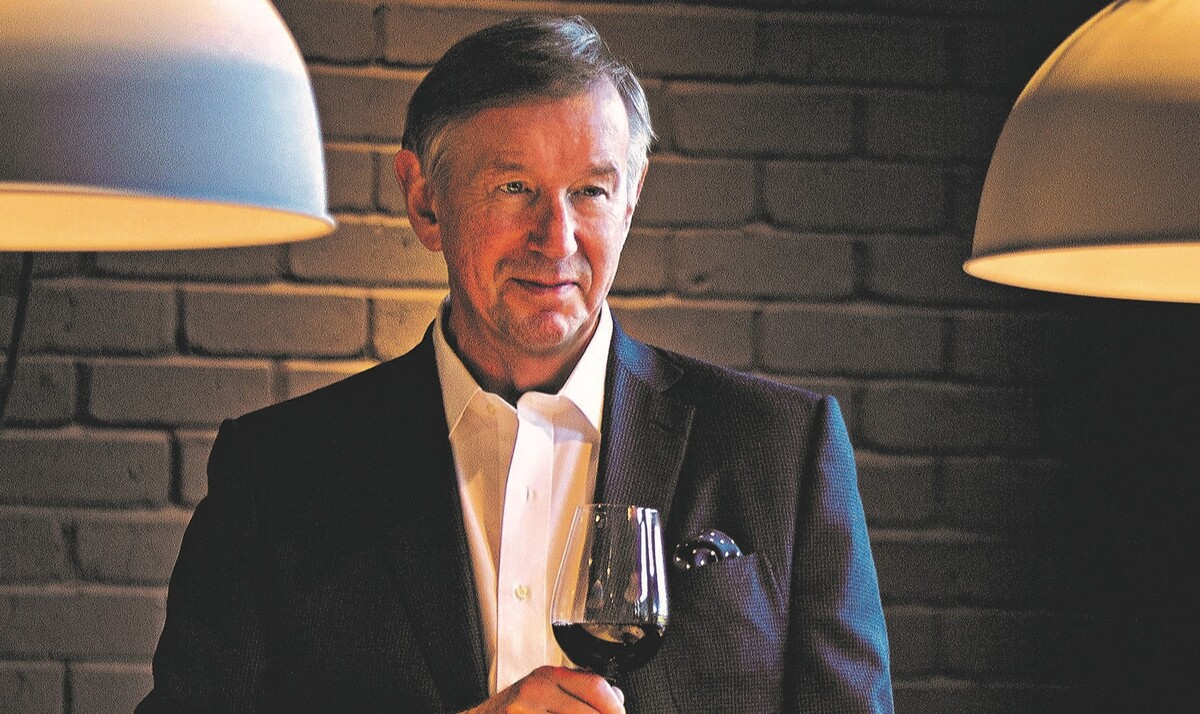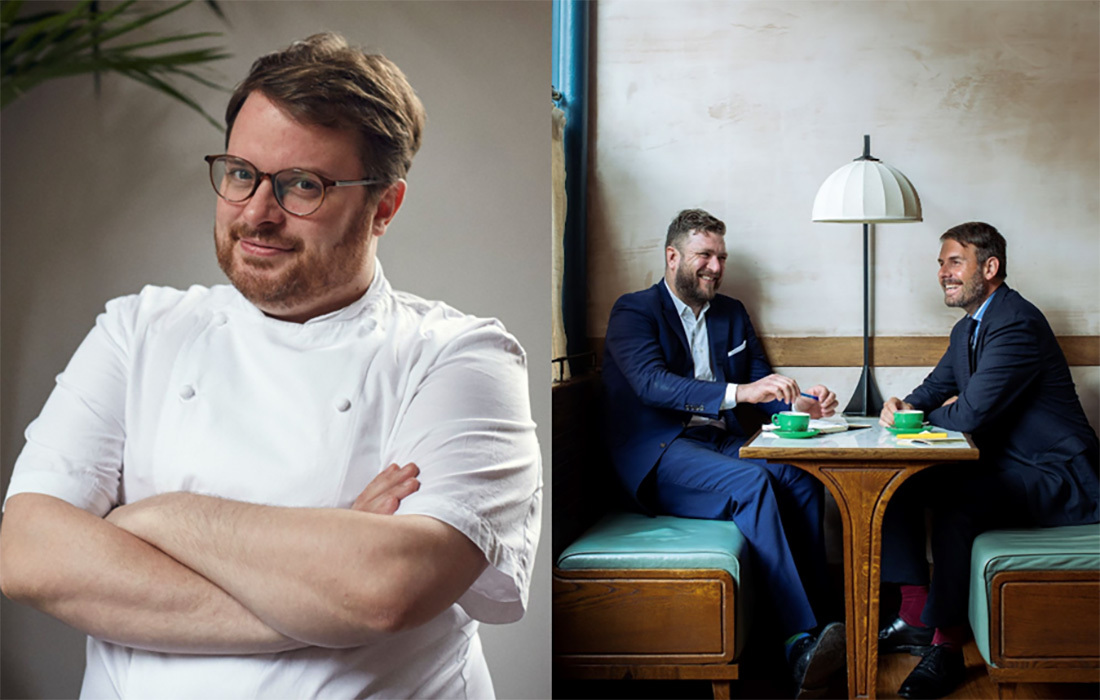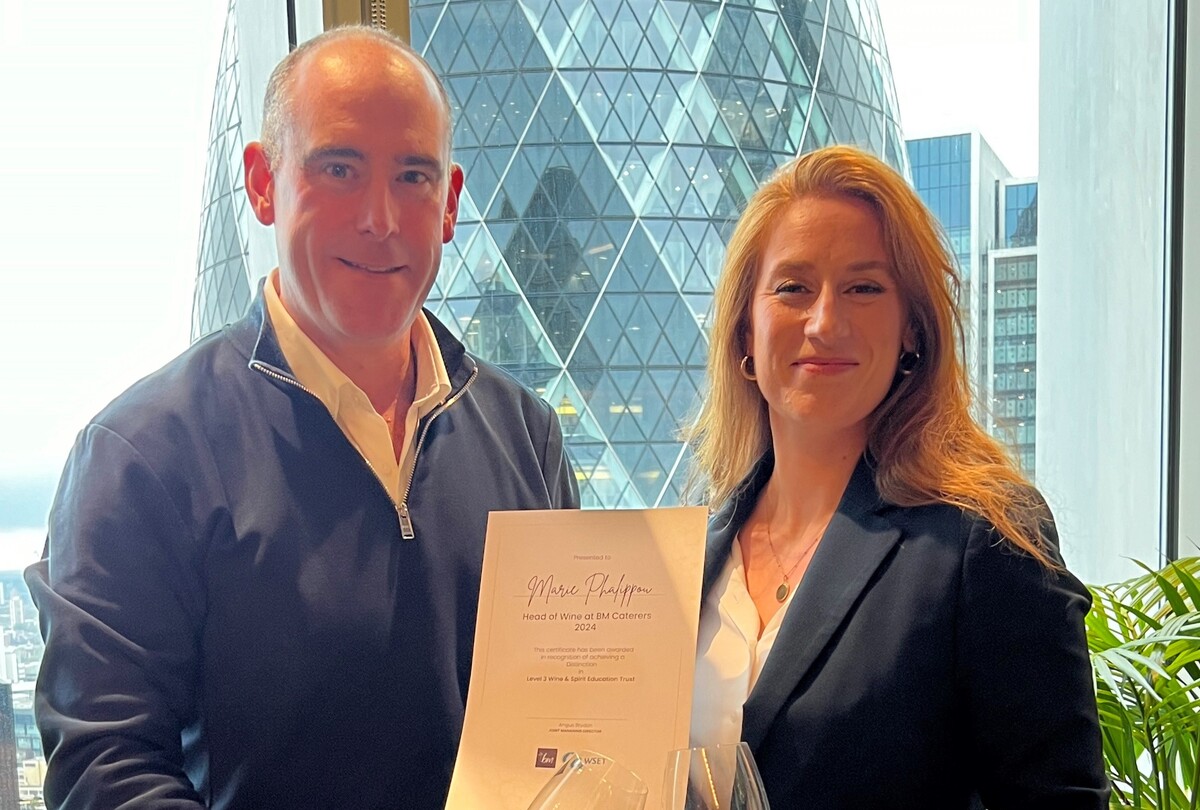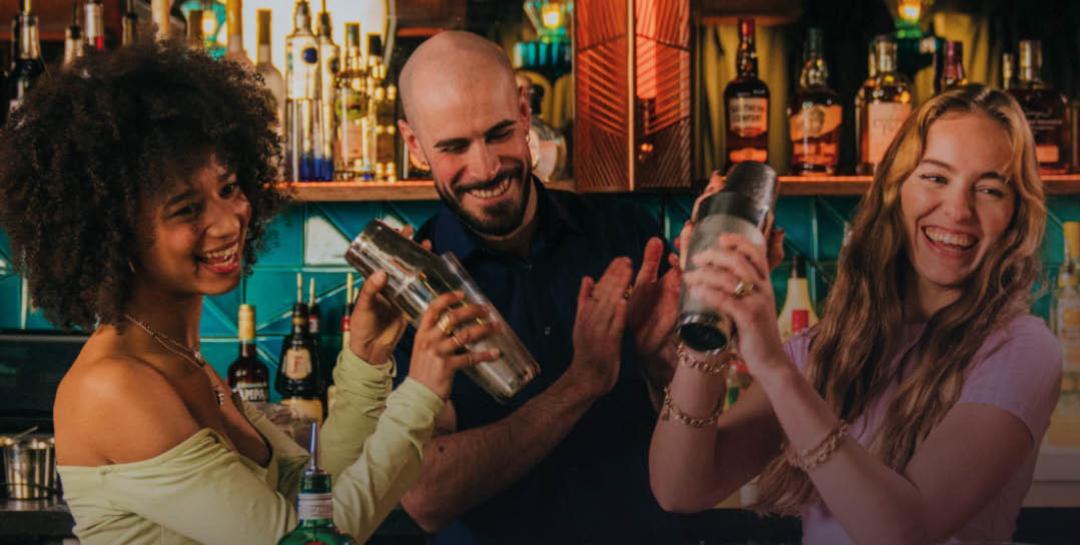The Caterer interview: Adrian Dishington
The chief operating officer of Centerplate UK roamed the globe on cruise ships and worked for the caterer in the US before returning to the UK to create the Hospitality Services Group. He talks to Piers Zangana
Tell us a little bit about yourself. What is your background?
I was raised in hotels, as my mother owned a little property in Crail, in the East Neuk of Fife. After I finished my hospitality management course in Dundee, I had to make a choice between carrying on in the family business or trying something different. I tried something different and applied for a job on the cruise liners, operating out of the US. I soon found that you live and breathe your colleagues when you are on a ship, so it's important that you are all on the same page.
After being on the ships with Princess Cruises for seven years, I was offered a role in their corporate offices in Los Angeles. I then moved into boutique hotels and worked in Santa Monica for a couple of years, before another brief stint on cruise liners in Hawaii. I joined the catering industry with Aramark in 2007, before moving to Centerplate North America. I have been chief operating officer of the UK business since 2014.
Why did you make the move from hotels to foodservice?
To be honest, there are much tighter margins in corporate catering compared to boutique hotels. It's very different. It was a challenge that was attractive to me. I'm not averse to getting in at the granular level and getting my hands dirty, so I wanted something that would push me to that next step. I had a great time working for Centerplate in the US and was excited about the challenge of operating the UK business.
So tell us a little bit about Centerplate in the UK. What are your core business areas?
It's very simple; we provide catering in the stadia and the heritage markets. At the moment, we want to focus on what we do best in areas we are experts in. It's very important that we are focused. We are not what the Americans call a ‘cookie-cutter' business; we are more bespoke and want to make sure that our vision is aligned with our clients' vision.
Centerplate acquired Lindley Group a year before you joined the UK business. Can you tell us a little bit about where Lindley was and what you did when you arrived?
While it was clearly a brilliant business, Lindley had probably reached its peak, so it needed new hands to make it excel further. I came to the UK a year after Centerplate acquired it and I've been focused on creating a sustainable business model for it ever since. Given that we came to the country quietly, we sometimes need to get over that boundary and tell people who Centerplate actually are.
Why did you come ‘quietly'?
I always tell clients that we are like a chef and staff in their houses, and I believe that our focus needs to be on that and not pushing our brand name. Given that we do a lot of white label work, I actually live for the final execution of the product.
How did Centerplate staff react when you came to the UK?
When I joined from the US business, some of our staff initially perceived it as ‘the Americans are coming'. However, they were slightly confused when they were greeted by a Scot with a funny accent. It was important to reassure people that we were not changing our culture but, instead, creating an environment based on both a US and a UK perspective.
So what has been your main focus?
We've done a bit of restructuring, but the focus has been on creating a sustainable business model. We've reinvested by developing our Hospitality Services Group (HSG), acquiring the Heritage Portfolio and bringing more capital for our clients.
My view is always to invest more in the business. It makes sense. Also, I've spent a lot of time trying to understand our teams. We've got some very talented people here. I've particularly noticed that the new generation of staff we employ have generally spent longer in the education system than people would in my time. They are driven by being part of the overall impact our business makes. I really enjoy working with them as they take ownership of their part of the business. That's really important. I want people to be involved.
So is this how you manage your team?
Yes. I also always like to keep my immediate team small so people get quick responses. I think that's important. I think my team quickly realised that I don't rest. I always tell them that if they send me an email at 10pm, they shouldn't be surprised if I reply at 10pm, so they should time their emails wisely!
What is the Hospitality Services Group?
It was an idea first introduced successfully in the US and which we've brought over here. We have created an internal team of experts in design, architecture, manufacturing and equipment, who can provide a one-stop-shop to our clients. We can now go from initial consultation right the way through to delivery. We see this as a real USP and a key part of our strategic development.
It's through the HSG that we introduced the Fanzone concept at Sunderland FC. We looked at a space in the car park and thought, "what can we do to make it attractive for people to come to and be portable if it needs to be moved at the end of the season?" We took some shipping containers, turned them into a bar and a food outlet, and there's a stage too, which provides lots of interaction. It's great to have a group who can put some creative thinking to our clients, rather than them having to go elsewhere.
Twycross Zoo
Is doing business here drastically different than in the US?
Our language is the same [laughs] but there are some key differences in the way we operate. The deliverables are different and they are probably a little more relaxed in North America.
What do you mean?
What about your clients and customers â" do they look for something different here in the UK from their operators?
I always say that we pride ourselves on quality, service and being locally relevant. This isnât different in the UK or the US. Locally relevant can mean something different here purely due to the smaller geographical spread, but the principle is the same. Sports fans are generally looking for more of an experience when they attend events. In the US, the act or game is sometimes secondary to the experience. We can learn from this.
How competitive is the market over here compared to the US?
The UK catering market is far more competitive than the US, primarily because of the geography. If you think about it, a London-based caterer can provide catering services to a business in Manchester or Edinburgh far easier than a US caterer looking to provide services from San Francisco to New York.
Exhibition Centre Liverpool
What about technology? Is it driving change?
Absolutely. The stadia market is developing rapidly. In one of the contracts we have in the US [Levy Stadium] in San Francisco, every fan in the whole stadium is able to access an app which can enable them to order food and have it delivered to their seat. Technology is changing the face of the market. Even simple things like electronic menu boards are helping operators develop dynamic pricing.
Technology is driving us forward and itâs making things easier. However, tech can also be expensive, so itâs really important to introduce it into venues in a sustainable manner. In the UK, there are some very old stadiums with heaps of history, so itâs important to use new technologies in a way that works for the stadium and the venue. For example, these stadiums are likely to move to more handheld systems rather than ripping walls down to put cables in.
What are the key issues that drive your business operations?
Speed of service and quality are always key issues which matter to our customers and clients. We are constantly looking at ways to improve our service and get the right offering in our venues. In some stadiums, weâve streamlined menus to the point where we try and balance our offer around the ground. Itâs about getting it right for the customer.
What do you see as the main differences between in-house and outsourced catering operations in your stadia business?
We believe there is a difference. Generally, outsourced companies have a broad grasp of whatâs happening with the market and with trends and can also assist with things like purchasing. Youâd be hard-pushed to find a stadium in the US which is not outsourced. There are many reasons for this and itâs not always financial. For example, all it takes for an in-house team is to lose a couple of members of staff and their whole offer is likely to be affected. Outsourced businesses can mitigate against these sorts of scenarios as we have a larger resource available to us. We also have more behind us and can share ideas. I always believe that the best thing about the food world is that we can share ideas across our contracts.
What about skills â" is the industry-wide chef shortage affecting your business?
Like most companies, we are looking at ways of encouraging young people to enter the industry. Thatâs why weâve recently launched an initiative with Hastings Pier, one of our clients, where we will offer internships and jobs to students at the nearby Sussex Coast College.
Iâd always encourage people to work with colleges as we are able to provide so many opportunities to young people looking to enter the industry. Our industry has changed so much. The days of kitchens as old sweat boxes in the back of buildings are long gone. Kitchens are phenomenal places and we need to encourage more people to enter our world.
So what does the future look like?
We are clear that organic growth is a key focus for us. Itâs very important that we build on our existing contracts. We are looking to bring our Heritage Portfolio brand (which is strong in Scotland) further into England and this was a big reason behind the acquisition. We believe there are opportunities there.
Stadia currently makes up approximately 60% of our business and heritage is at 40%. Weâd like this number to be more even in the future. Also, itâs a real privilege to work for a business that is profitable and enables us to consider further UK acquisitions if the right opportunity comes along. Iâve heard of companies coming over here and staying for a couple of years then heading back. Thatâs not us. We are 100% committed to staying here.
Adrian Dishingtonâs CV
April 2014 to present Chief operating officer, Centerplate, UK
September 2010 to April 2014 Regional vice-president of operations, Centerplate, Seattle, US
March 2009 to September 2010 District manager, Aramark, Angels Stadium, Anaheim, USA
February 2007 to March 2009 District manager, Aramark, Lake Powell, Anchorage, US
February 2005 to February 2007 Hotel director, Norwegian Cruise Line America, Honolulu, Hawai
January 2004 to January 2005 Director of food and beverage operations, Kor Hotel Group, The Viceroy Santa Monica, US
Dec 1999 to Jan 2004 Corporate manager of food and beverage operations, Princess Cruises, Beverly Hills, US
Mar 1992 to 1999 Food and beverage director/passenger services director, Princess Cruises, Beverly Hills, US
Sunderland AFC Fanzone
Centerplateâs Hospitality Solutions Group designed and installed a new Black Cats Fan Zone at Sunderland AFC ahead of the opening match of the football season.
The Fan Zone is a festival and street-market space for match day ticketholders. It has the capacity for up to 6,000 guests and is usually open three hours prior to kick-off and for one hour after the final whistle. It offers entertainment, food and beverages in a family-friendly environment.
It also includes a new âLegends Areaâ, where supporters are able to meet some of the Black Cats football heroes, and âThe Deckâ, an elevated mezzanine area overlooking the festivities, which can be used as a VIP party area.
The Fan Zone is also open as an amenity to people attending concerts and other special events at the stadium.
Centerplate stats
UK turnover Approximately £55m
Number of employees 200-plus fixed staff and circa 5,000 casual
Number of contracts/client sites Centerplate UK has more than 32 sites and Heritage Portfolio has more than 12 sites
Recent contract wins
- ACC Liverpool
- British Airways i360
- Liverpool Philharmonic Hall
- Portsmouth FC (contract renewal)
- Sunderland AFC (contract renewal)
- Twycross Zoo
- Watford FC
Â
Centerplate to provide catering on Hastings Pier >>
Centerplate announces new food, beverage and service at Portsmouth FC >>
Latest video from The Caterer


